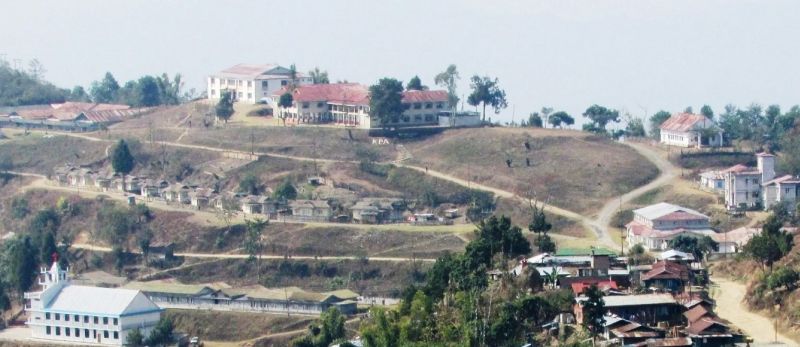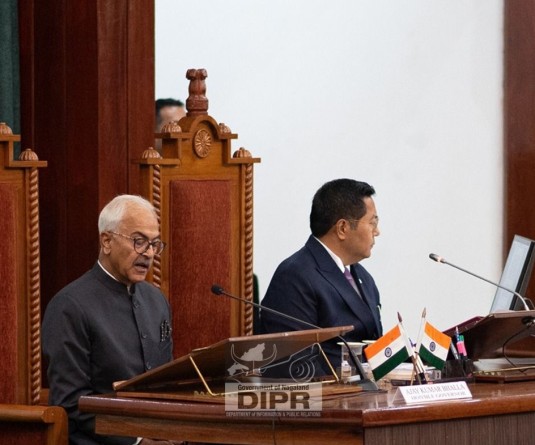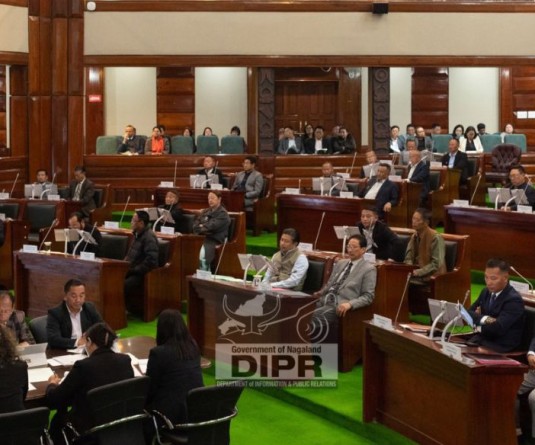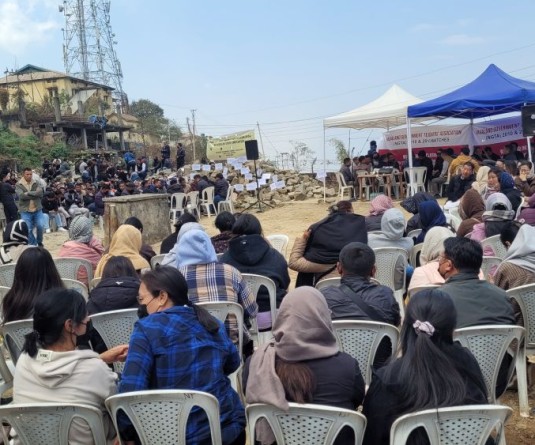1

A vie of the Khelhoshe Polytechnic Atoizu. (File Photo)
Our Correspondent
Kohima | February 21
The state’s Department of Technical Education (DoHE) is working hard to upgrade Khelhoshe Polytechnic Atoizu (KPA) to Degree Engineering College.
This was stated in the Annual Administrative Report 2019-20 of the Department of Technical Education tabled in the recently concluded assembly session here.
The report stated that the Directorate of Technical Education was established as a full-fledged Directorate in the year 2007 after bifurcating from Higher Education.
There are six Government Polytechnics under the Department: It includes; Khelhoshe Polytechnic Atoizu, established in the year 1972 under Zunheboto District, Government Polytechnic Kohima (established in 1994) and Institute for Communication and Information Technology (ICIT) Mokokchung established in 2003, Government Polytechnic Seithekema-C, Dimapur, Govt. Polytechnic Tsunazho, Chetheba, Phek and Government Polytechnic Sedem, Tuensang were established in 2018.
Also, Under the GOI Skill Development Programs, the ongoing Project of Sub-Mission on Polytechnics under the Coordinated Action for Skill Development, MHRD, New Delhi, 5 (Five) new Polytechnics have already been sanctioned. The Govt. Polytechnics Wokha, Aboi (Mon), Peren, Kiphire and Longleng are under process for creation of posts.
Thus the State now has six technical institutes offering three-years engineering diploma programs in Civil, Electrical & Electronics, Mechanical, Automobile, Computer Science, Electronics & Communications, Information Technology, Modern Office Practice and an Advanced Diploma Program in Fashion Design & Apparel Production.
The Department, as part of improving the quality education and as per AICTE guidelines has initiated for National Board of Accreditation (NBA) in respect of Khelhoshe Polytechnic Atoizu and Government Polytechnic Kohima respectively as first phase.
The department in its mission and vision stated that the economic competitiveness of the state depends on the skills of its work force.
The skills and competencies of the work force, in turn, are dependent upon the quality of the Technical education and training systems. Technical Education is perceived as one of the crucial elements in enhancing economic productivity. Based on social efficiency theory, Technical Education aims in preparing and supplying future workers with appropriate knowledge and skills to enhance their productivity and, therefore, promote economic growth.
Rising unemployment, lack of skilled workers, high dropout rates, and the changing demographic nature of the work force have placed the issue of workforce education high on the educational reform agenda.






